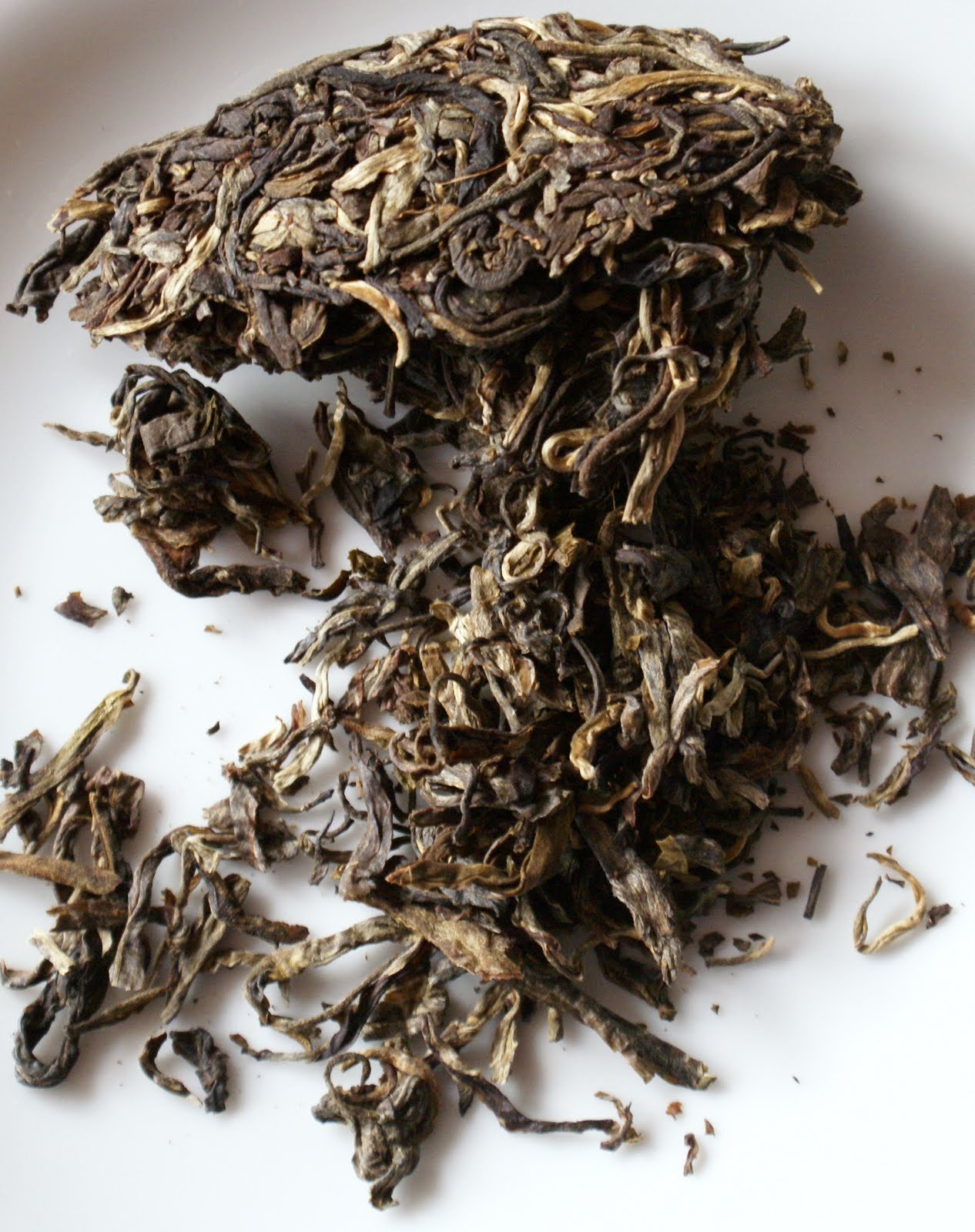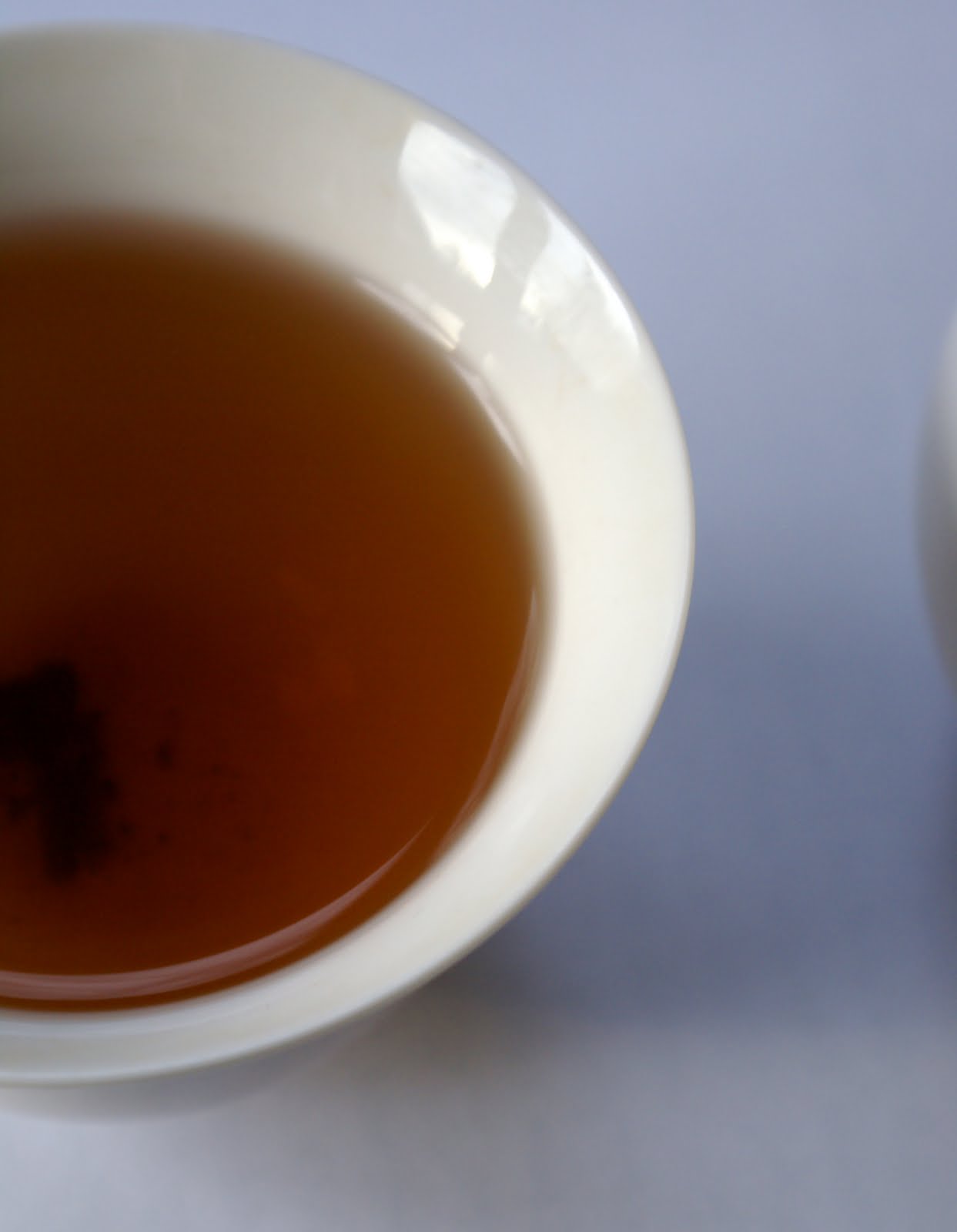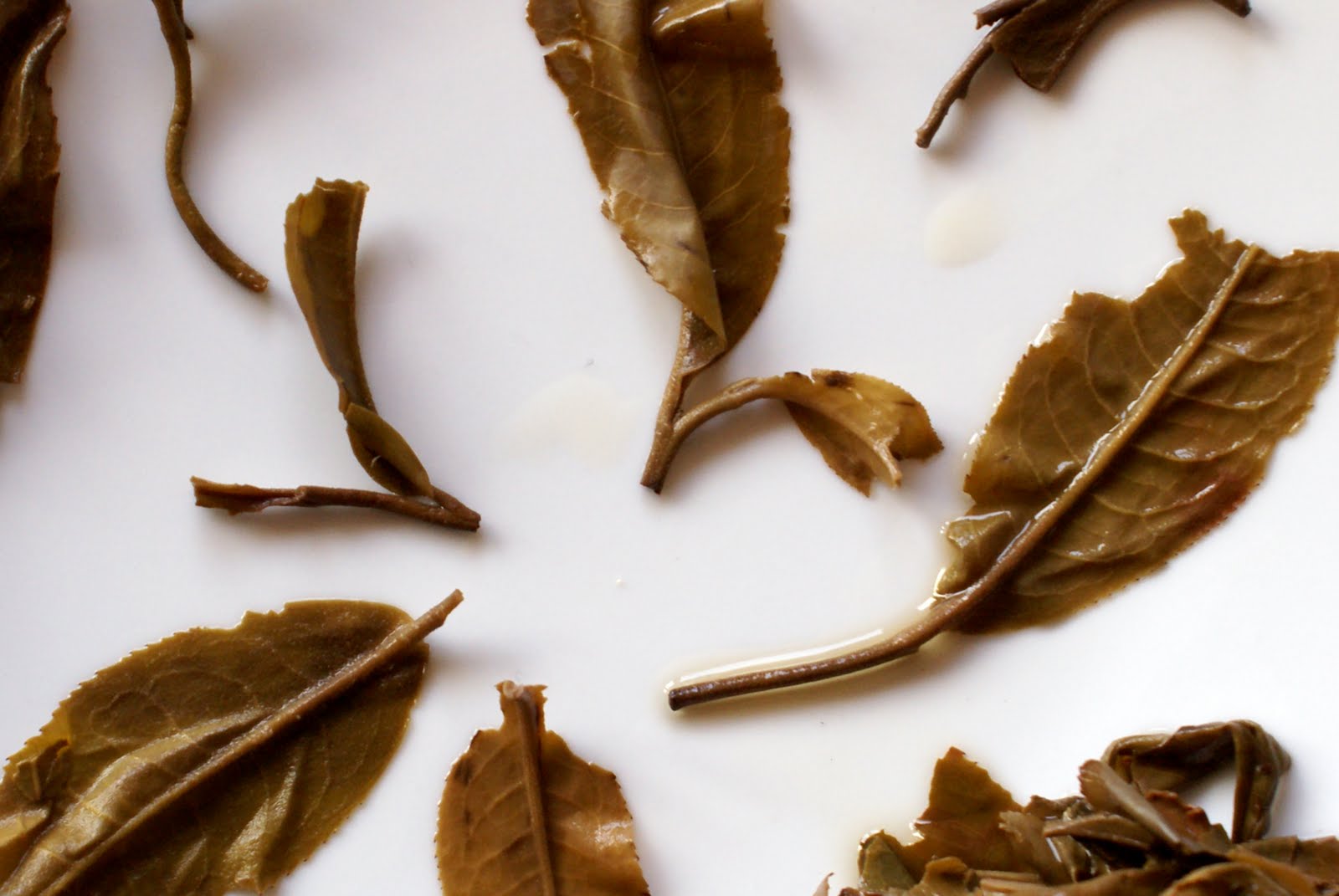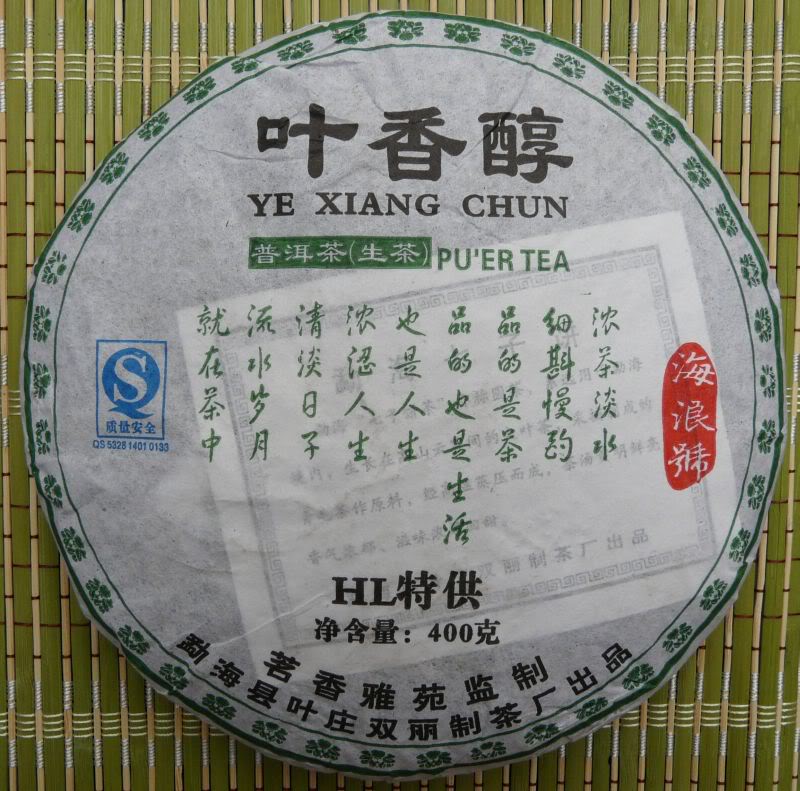2009 Hailanghao Laoman’e Wild Arbor
Posted on 13 April 2010
© Yunnan Sourcing.
I have a large stash of 2009 puer to review, having stocked up heavily on the vintage to lay down and enjoy over the next few decades. Today I’ll start with one of the more serious teas: the 2009 Hailanghao Laoman’e Wild Arbor green puer. Sourced from Yunnan Sourcing, it is still available at $48 per cake; see product page for info on this (it is actually 2008 tea that was pressed and released in 2009).
Hailanghao is enjoying a fine reputation for their recent releases, especially their more ageworthy teas from selected villages. This is one of them. As aficionados will know Laoman’e is a village in the Bulang district that produces very structured and austere tea similar in style to the Laobanzhang, and increasingly being proposed as a model of the long-term puer genre when Laobanzhang is falling victim to the puer hype and mindlessly downgrades its own production (see interesting article about this here).

This 2009 HLH release is precisely that. It is an extremely powerful tea. And a very good one at that. The leaves are finely processed, very loosely pressed (separating a sample is done within seconds with no damage whatsoever), and – important for long-term ageing – very well dried too. The smokey, meaty, almost gamey aroma is a good indication of what is to come.
In short, this tea is overpoweringly bitter and structured, no matter how brief you keep the infusions. In my case, with a standard dosage of 5g / 120ml, even 10 seconds for the first and 7 seconds subsequently resulted in a nearly undrinkable brew.

The colour is darker than expected, peachy, almost beige, far from a young-tea yellow, which together with the meaty aroma suggests a bit of slow oxidation to the base tea (no doubt a result of one year of ageing before pressing). The lid and tea aroma is subdued, a little generic, faintly sweet. While chunky and powerful, the first infusion is actually only mildly bitter, leathery and woody in taste, with very impressive intensity and persistence. Surely there is little ‘fruit’ and the whole is austere but the balance is there. Subsequent brews are increasingly challenging as the bitter decomposed wood dryness dominates the aftertaste. Leather and meat too, and there’s a mildly disturbing mushroomey note developing, robbing the tea of some cleanliness. As the tea cools down there is a pleasant sweetish yun sensation adding to the strong bitterness.

This Laoman’e is true to its reputation, and is one for the hardcore puer fanatic. I can’t see this tea appealing to a novice: the strong bitterness and idiosyncratic profile would surely turn most people off. I feel more respectful and admirative about it than sensually attracted, but there’s no question it’s a balanced tea that has all the necessary elements to age tremendously well even over 15 or 20 years. I just feel a little stupid drinking it today. Like a strong red wine from, say, Madiran or Montefalco, it just needs considerable time to settle. (At least 6–7 years would be my guess here).
Whether it’s worth the asking price of $48 depends on your bias towards single-cru tea: you can have four cakes of the Menghai #7542 for the money but they won’t be so distinctive. I’m glad to have both.
Source of tea: free sample thrown in by Yunnan Sourcing to my order.





